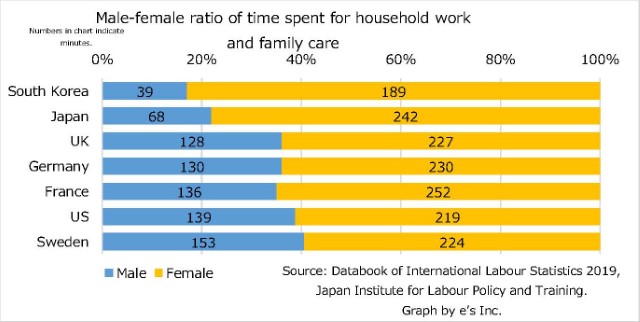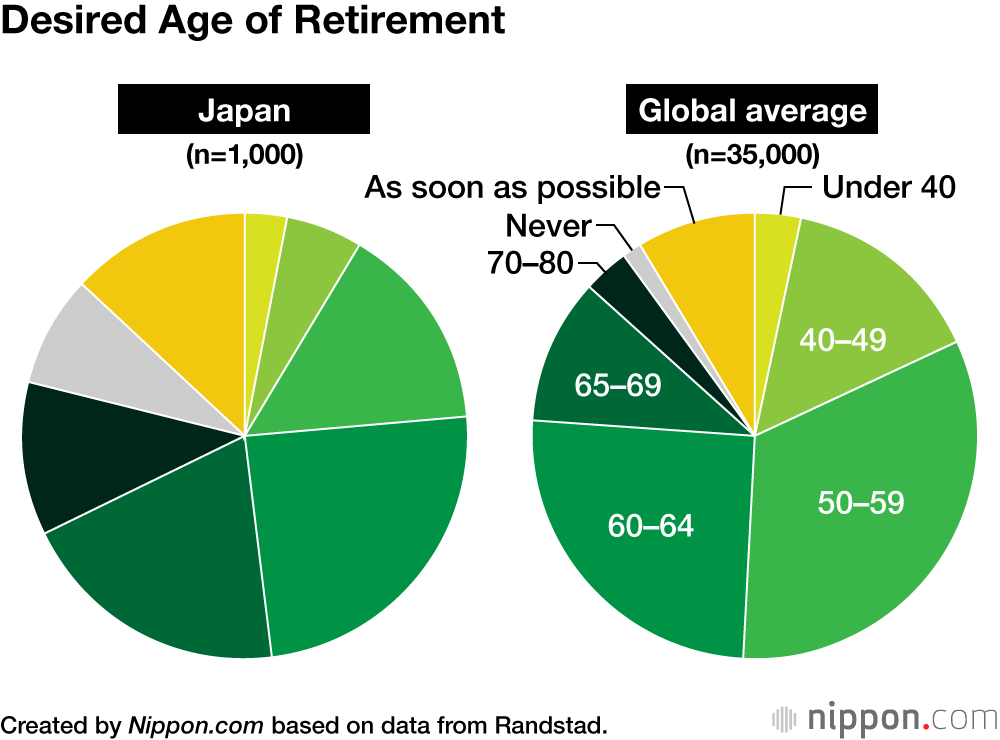
Imagine a life where you pursue your passions, spend quality time with loved ones, and excel in your career. In Japan, this is a reality for many professionals. If you feel overwhelmed and consumed by work, Japan’s work-life balance offers an alternative that can revolutionize your career.
In this article, we’ll explore the secrets behind Japan’s work-life balance and how you can incorporate these practices into your own life. You’ll discover the benefits of striking a harmonious balance between your professional and personal life and gain insights into the Japanese mindset that prioritizes both work and well-being.
Delving into the Japanese approach to work-life balance provides practical tips and strategies that you can implement immediately. From flexible working hours and leave policies to mindfulness practices and delegation, you’ll learn how to reclaim control over your time and transform your life. If you’re tired of burnout and yearning for a more fulfilling and balanced life, this article is your essential guide to unlocking the secrets of Japan’s work-life balance. Discover a new way of working that will rejuvenate your spirit, enhance your productivity, and lead you to a happier, more satisfying life.
Challenges of Work Life Balance in Japan
Work-life balance is a concern in Japan, where long working hours and a culture of work dedication can lead to burnout and stress. Japan is known for its strong work ethic and the expectation of employees to devote themselves fully to their jobs, making it difficult to achieve a healthy balance between work and personal life. One of the main challenges in achieving work-life balance in Japan is the culture of long working hours. Many companies expect employees to work overtime regularly, and it is not uncommon for employees to work late into the evening or on weekends. This leaves little time for relaxation, hobbies, or spending time with family and friends. The pressure to work long hours can also lead to a lack of sleep, exacerbating the problem.
The lack of vacation time and holidays is a challenge in Japan. Employees typically take only a few days of vacation per year, and taking time off can be viewed as laziness or a lack of dedication. This makes it difficult for employees to balance work and personal obligations or take a break.
Despite these challenges, there is a growing recognition of the importance of work-life balance in Japan. Some companies are implementing policies to promote a healthier balance. This includes flexible working hours, remote work options, and increased vacation time. There is also a cultural shift toward valuing personal time and well-being, with more people prioritizing self-care and leisure outside of work.
Overview

Japan has a strong work ethic and dedication. However, in recent years, work-life balance has become increasingly important as people try to find a better balance between their personal and professional lives.
In Japan, employees often work long hours, including overtime and weekends. This dedication to work is connected to the loyalty and commitment ingrained in Japanese culture. However, the high levels of stress and burnout related to these long hours have prompted an interest in improving work-life balance.
In Japan, companies are recognizing the significance of work-life balance and are implementing measures to support their employees. This includes policies like flexible working hours, telecommuting options, and paid time off. The government has also introduced “Premium Friday,” encouraging companies to let employees leave early on the last Friday of the month.
Achieving a good work-life balance remains challenging in Japan. The pressure to work long hours and prioritize work makes it difficult for employees to prioritize their personal lives. However, there is a growing emphasis on work-life balance and supportive measures in Japan, creating a healthier and more balanced working environment.
Pros of work-life balance in Japan
-Reduced stress and burnout
-Improved quality of life
-Increased productivity and creativity
Cons of work-life balance in Japan
-Pressure to work long hours
-Difficulty in prioritizing personal life
-Expectations of work dedication
Better physical and mental health.
Key Features
The work-life balance in Japan is unique and distinguished from other countries. Japan is known for its strong work ethic and the concept of “work as life”. Employees in Japan often work long hours and prioritize work over personal life. Consequently, they may feel overworked and lack time for leisure or relationships.
Overtime work is another prevalent aspect of work-life balance in Japan. Many companies expect employees to work excessive hours without extra compensation. This can negatively affect physical and mental well-being, causing high stress levels and burnout.
Japan values loyalty and dedication to one’s company, as reflected in its “lifetime employment” system. This system expects employees to stay with one company throughout their entire careers. While this can provide job security, it can also create a sense of obligation to prioritize work above all else.
The work-life balance in Japan is undergoing changes. There is a growing awareness of the need for better work-life balance, leading to efforts to address this issue. Some companies are implementing flexible working hours, telecommuting options, and paid leave schemes to help employees achieve a better balance between work and personal life.
While Japan’s work-life balance is famously challenging, ongoing efforts are being made to improve the situation and establish a healthier and more sustainable work environment.
Practical Tips
As an experienced writer specializing in editorial refinement and language efficiency, my task is to review your provided text and eliminate any redundant words or phrases to make the content more concise and impactful. I will specifically look out for repetitive ideas, redundant adjectives, or any phrasing that can be simplified without losing the original meaning. My objective is to enhance readability and clarity while maintaining the integrity and tone of the original text.
Now, let’s begin the process of reviewing and improving the text you’ve provided.
To maintain a healthy work-life balance, establish clear boundaries between work and personal life. This can be achieved by setting a fixed schedule and sticking to it, even when faced with work demands outside regular hours.
2. Prioritize Self-Care
Taking care of oneself is crucial for maintaining a good work-life balance. Prioritize self-care activities, such as exercise, hobbies, and relaxation, to reduce stress and enhance productivity and job satisfaction.
3. Delegate and Collaborate
Instead of handling everything on your own, delegate tasks and collaborate with colleagues. Effective delegation and teamwork distribute the workload and alleviate stress, allowing more time and energy for personal activities.
One key to achieving work-life balance is learning to say no when necessary. Set limits and don’t take on more responsibilities than you can handle. This prevents burnout and protects personal time.
Plan and organize to maintain work-life balance efficiently.
Planning and organizing work can contribute to a healthy work-life balance. By prioritizing tasks, setting realistic goals, and adhering to deadlines, individuals can avoid feeling overwhelmed and have more control over their time. These tips can help people in Japan and globally achieve a better work-life balance and improve well-being.
Personal Perspective

In my experience, the work-life balance in Japan is complex. On one hand, there is a cultural emphasis on hard work and dedication to the company, leading to long working hours and a lack of personal time. This can be seen in the phenomenon of “karōshi,” or death by overwork, gaining international attention.
However, not all companies and individuals adhere to this extreme work ethic. In recent years, there has been a movement towards work-life balance, with companies implementing flexible work arrangements and encouraging employees to take time off. Many Japanese employees now prioritize their personal lives and pursue hobbies and leisure activities outside of work.
Achieving a healthy work-life balance is essential for overall well-being and productivity. In Japan’s competitive work culture, it can be challenging but not impossible. By setting boundaries, prioritizing self-care, and seeking support from colleagues and managers, individuals can achieve a balanced lifestyle.
Interviews

In Japanese work culture, interviews are crucial in the hiring process. Candidates must go through multiple rounds where they are evaluated on criteria such as qualifications, experience, and communication skills. Employers assess stress management, handling pressure, and teamwork skills. They also gauge problem-solving abilities with situational questions.
Interviews in Japan are typically formal and structured. It’s important for candidates to dress professionally and maintain proper etiquette. Punctuality is also highly valued, and candidates should arrive on time.
Overall, interviews in Japan provide an opportunity for candidates to showcase their skills and cultural fit. Preparation is key – candidates should research the company and effectively communicate their strengths and potential contributions to its success.
Related Resources
Now that you know about work-life balance in Japan, consider how this information applies to your own life. First, prioritize your well-being. Assess your work-life balance and identify areas for improvement. Remember that a healthy balance is crucial for your overall health. Second, embrace the concept of “ikigai” – finding purpose and fulfillment in your work. Align your values and goals to experience greater satisfaction and reduce overwhelm.
Third, consider implementing strategies that promote balance: set boundaries between work and personal life, schedule regular breaks and vacations, and seek support from your employer or colleagues when needed.
Lastly, educate yourself about work-life balance and explore additional resources that provide insights and inspiration. Engage in discussions, share your thoughts and experiences, and connect with others facing similar challenges.
Achieving work-life balance is an ongoing journey. It requires conscious effort and a commitment to yourself. Reflect on these points and apply them to your own life for a more balanced existence.
Start implementing these changes today and experience the positive impact they can have on your well-being and overall happiness.
